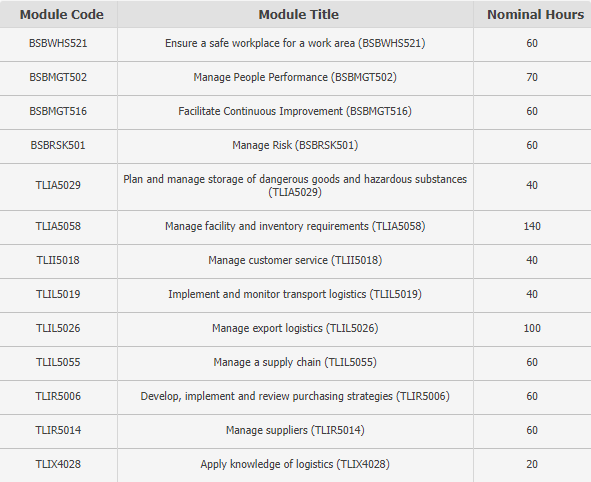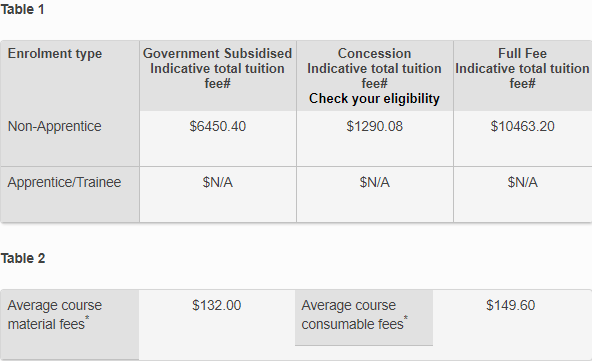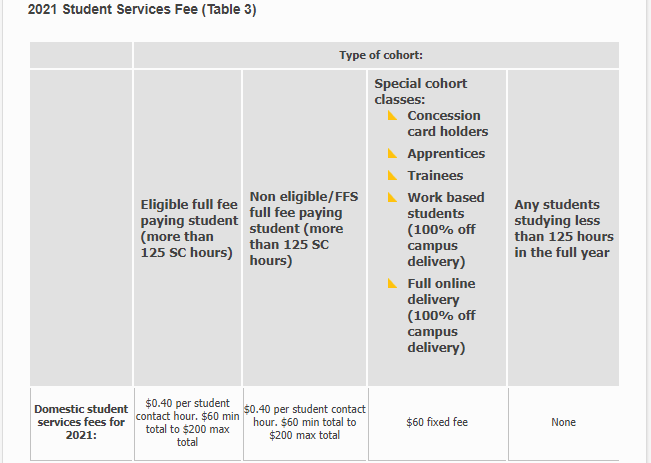

Diploma of Logistics (TLI50219)
Start Date: Rolling enrolments (enrol anytime)
Duration: Part time -1 year
Campus: Broadmeadows
Entry Requirements:
There are no set prerequisites for this course. However it is recommended that you have satisfactory numeracy and literacy skills to undertake this course or are mature age and have sufficient work experience to successfully undertake the course. Australian Core Skills Framework Level 4
You may also apply if you have satisfactorily completed VCE or an approved equivalent course and the satisfactory completion of the work requirements (eligibility to transfer); or are mature age and have sufficient work experience to successfully undertake the course. (Mature age is anyone over the age of 18 who has been out of full-time education for more than 12 months.)
The Diploma of Logistics provides you with an understanding of management of the supply chain, purchasing, materials management, inventory control, warehousing, customer service and transport and distribution.
This logistics course offers career opportunities in Supply Chain Management and Logistics ranging from importing and exporting functions, Operations Management, Supervision through to Distribution operations.
Core units:

Elective units:

How will I be assessed?
You will be assessed to show that you have achieved the skills and knowledge required by the course. Assessment may include written, oral or practical assessment methods. You will know in advance about the type of assessment and how it will operate. There is the opportunity for reassessment and appeal and you will be given this information.
Fees:
As part of the scholarship program fees will be covered, however the amount/s may vary depending on the criteria set out in the terms and conditions. If you were enrolling in this course outside of the scholarship program the fees are indicative below and will vary depending on the units you select and your eligibility.
Your total course fee will typically include your tuition fee (table 1), any applicable consumables and/or material fees (table 2) and non-tuition fees such as student support fees (table 3).


What employment opportunities will I have?
Upon successful completion, there are a number of job opportunities available in the area of:
- Logistics management
- Warehouse management
- Distribution operations
- Operations management
- Transport
- Customs and freight
- Purchasing and inventory control
- Importing and exporting functions
What skills will I have when I complete this course?
You will gain the management skills and knowledge required to successfully manage the increasingly sophisticated and complex logistics, distribution and supply chain management functions.
What qualifications will I receive?
On completion of this course, you will be awarded the nationally accredited Diploma of Logistics (TLI50219).
As part of the Australian Qualifications Framework this program is nationally recognised.
What opportunities for further studies will I have?
The Diploma of Logistics (TLI50219) is a pathway into a degree qualification. Bachelor of Business (Logistics and Supply Chain Management). Students can receive advanced standing (credit) in the form of both priority entry and course credit points towards a bachelor qualification.
The information is correct at the time of publication (28/05/21). Every effort has been made to ensure details are correct and accurate, however Kangan Institute reserves the right to change information with respect to course costs, timing and selection criteria without notice. Conduct of courses and service offerings are dependent on student numbers and sufficient funding
Some or all of this training is delivered with Victorian and Commonwealth Government funding. © Bendigo Kangan Institute: RTO number 3077 | ABN 74 802 942 886 | CRICOS Provider Number 01218G
Kangan Institute acknowledges their campuses are located on the ancestral lands of the Wurundjeri people of the Kulin Nations. The institute respects the traditional custodians, elders and their cultural heritage.
13 82 33 | Kangan Institute Website | Privacy Statement | Disclaimer | Copyright